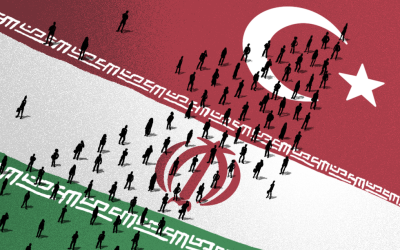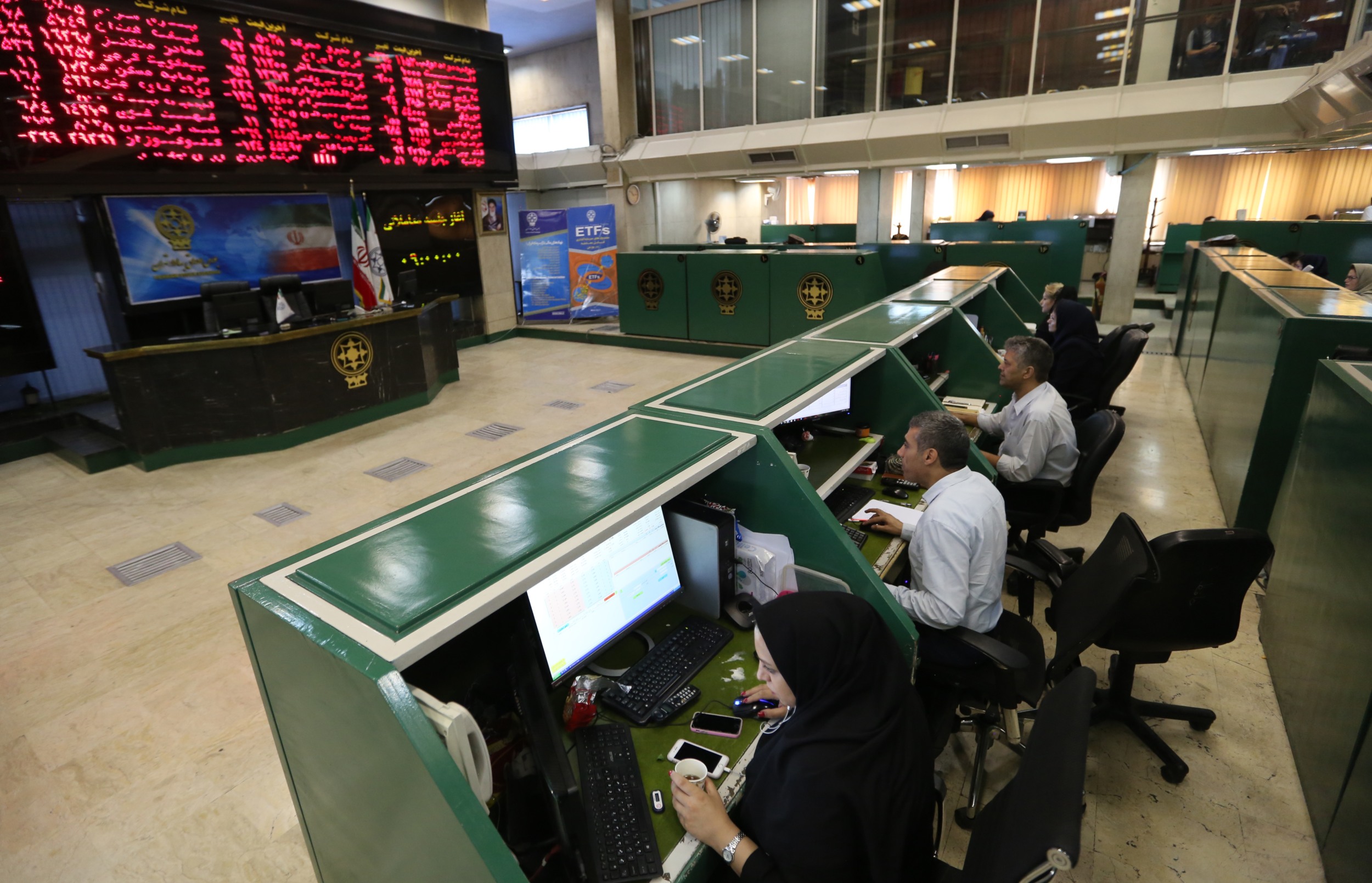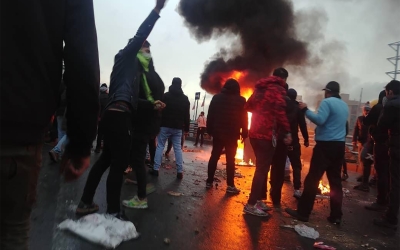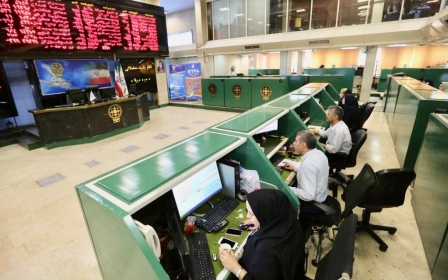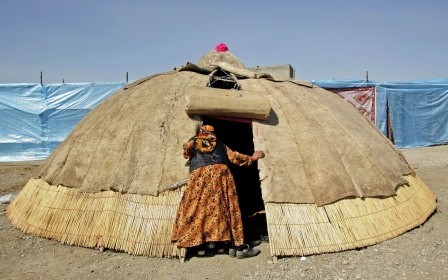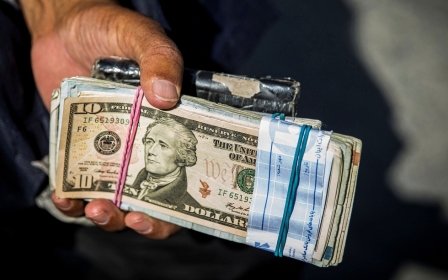Iran's stock market is booming despite warnings of bubble burst
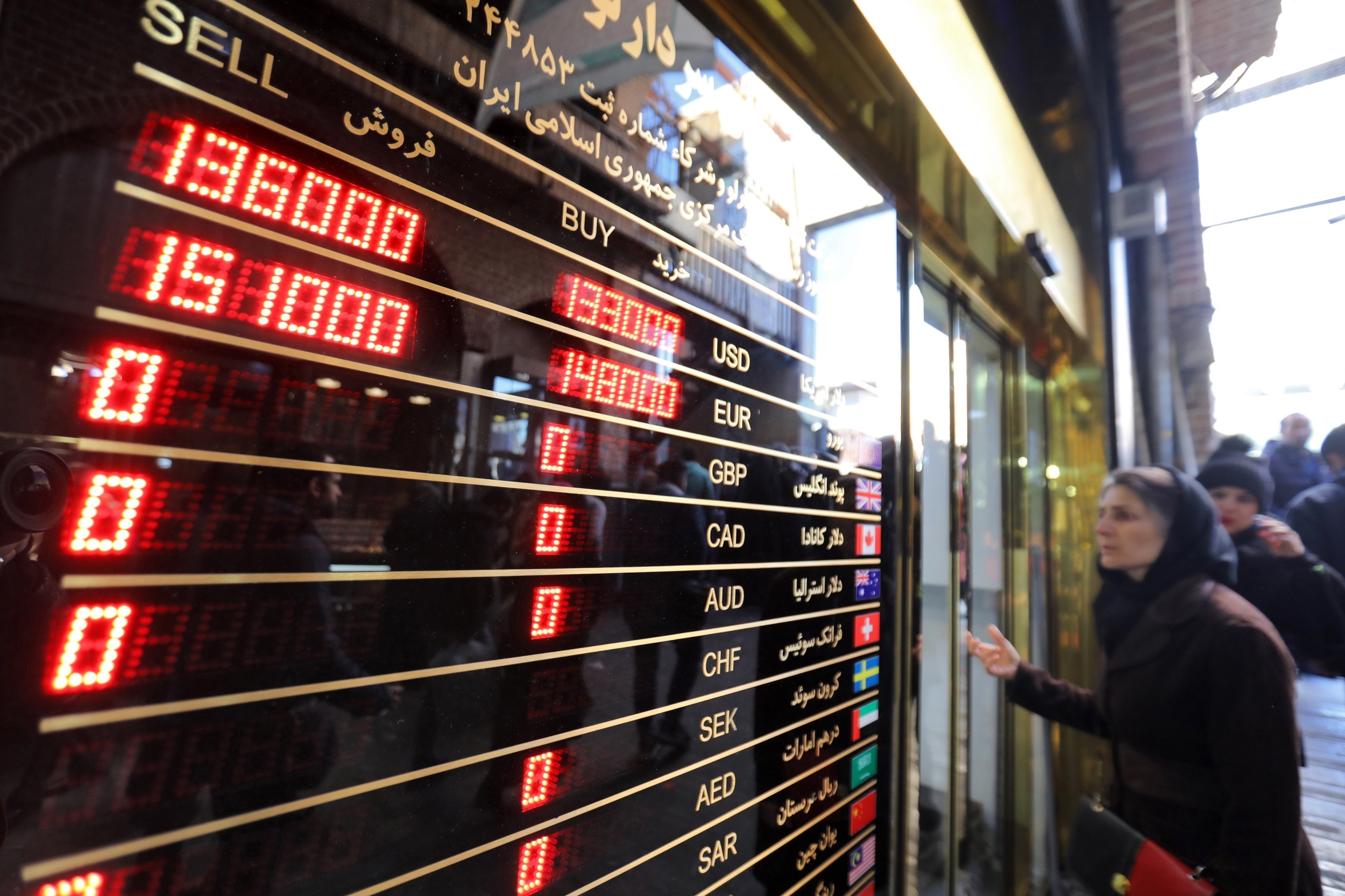
Long queues of people in front of stock brokerage firms across major cities in Iran have become a new normal over the past year, as citizens from all walks of life rush to one of the few investment tools still profitable in Iran's sanction-hit economy.
Despite major economic woes, Iran's capital market has been booming for over a year now. The Tehran Stock Exchange's (TSE) main index exceeded the 1 million mark on 9 May for the first time, continuing the market's bullish trend.
New MEE newsletter: Jerusalem Dispatch
Sign up to get the latest insights and analysis on Israel-Palestine, alongside Turkey Unpacked and other MEE newsletters
The TSE’s main index increased by over 130 percent during the first four months of 2020 alone, triggering a 140 percent increase in the total value of the capital market, which has reached all-time highs of $785bn at the official government exchange rate.
For now, Iranians are feeling the benefits. Ali is a 30-year-old Iranian living in the small northwestern border city of Jolfa in East Azerbaijan Province, which lies next to Armenia and the republic of Azerbaijan.
Despite being a business management graduate, Ali makes a living through photography and logo design. "I entered the capital market last month with just 70 million rial [$450 at free market rate], which is basically nothing. But I have already made a 23 million rial profit [about 33 percent]," he told Middle East Eye.
How long the trend will last, however, is anyone's guess.
Sanction-hit economy
Iran's economy has been experiencing one of its toughest periods in years following Washington's 2018 unilateral withdrawal from the international nuclear agreement and reimposition of a series of tough sanctions.
Iran's gross domestic product (GDP), which had experienced a 12.5 and 3.7 percent increase in 2016 and 2017 respectively after the signing of the nuclear agreement in 2015, underwent negative growth of 5.4 and 7.6 percent in 2018 and 2019 respectively, according to the International Monetary Fund (IMF).
Already hit with a significant loss of oil revenues and other export-oriented incomes such as petrochemical goods, Tehran has been dealing with the coronavirus outbreak since late February, adding further pressure. According to official figures, Covid-19 has claimed at least 6,937 lives and infected 118,392 as of Sunday.
Just as in other parts of the world, the pandemic's effect on Iran’s economy has been significant. A report by the parliament's research centre forecast that at least 2.8 million Iranians will lose their jobs in the first half of the current Iranian calendar year (from 21 March to 20 September) due to the pandemic. The same report foresees a 6.4 million job losses in the worst-case scenario.
Government sponsorship
Despite the severe economic woes and reports that low oil prices and reduced tax revenue will further intensify the government's budget deficit - the IMF forecasts that the budget deficit will reach 15.7 percent of gross domestic product this year, up from 10.6 percent in 2019 - the Iranian capital market continues to grow.
Many experts see government support for the capital market and other monetary policies, such as the recent reduction of interest rates as part of its plan to shore up the economy.
For Mohammadreza Bakhshi, an experienced capital market trader and investment advisor in Tehran, these recent developments are all part of what he describes as "government efforts to curb the budget deficit".
Last month, President Hassan Rouhani ordered his economy minister to facilitate the selling of major state companies on the stock market and announced plans to sell some $2bn worth of state assets to raise cash for the country's efforts against coronavirus.
On 15 April, the Social Security Investment Company (known by its Persian acronym Shasta) offered 10 percent of its shares to the public at the TSE. The offering, which was the largest initial public offering of shares on the Iranian capital market, was followed with a decree by Supreme Leader Ayatollah Ali Khamenei that allowed the trading of "justice shares" on the stock market.
These shares were given to millions of low-income Iranian families in 2006 as part of the country's privatisation plan, and are now worth nearly $19bn at the free market rate.
Amir Yousefianpour, head of the international department at the TSE, agrees that "Iranian businesses have been affected by economic restrictions" - but believes that "due to the recession in Iran's traditional investment markets, the stock market has not only caught the attention of large and institutional investors, but also that of ordinary Iranians".
"The continuation of major privatisation plans, the offering of new IPOs, freeing the justice shares and offering of ETFs [exchange traded funds] at attractive 20 to 30 percent discount rates will lead to a further boom of the capital market," Yousefianpour told MEE.
Overheating market
The continued growth of the Iranian stock market, which seems to contradict all the economic fundamentals of the country, has raised the eyebrows of some experts and officials alike, as they warn of a huge bubble that could lead to new major social unrest if and when it bursts.
Ahmad Naderi, a newly elected member of parliament from Tehran, is among those who accuse the government of playing a role in the capital market's boom and warn of its consequences.
A manipulated boom of the stock market is the last shot of shrapnel by the neoliberal government
- Ahmad Naderi, MP
"A manipulated boom of the stock market is the last shot of shrapnel by the neoliberal government," he tweeted on 5 May, in reference to Rouhani's administration.
"The stock market bubble will burst, and I am worried about its social and security consequences in the near future: riots bigger than those in 2017 and 2019, and certainly bigger than those in the 1990s," he said.
Ali Khezrian, another newly elected MP from Tehran, expressed a tentatively similar view a day earlier.
"These days, the capital market is accompanied by significant growth, which is by no means in line with economic reality of the country in the fields of industry and services..." he tweeted, while warning that it could lead to a bigger economic crisis than the one that erupted in 2018 after the collapse of several unlicensed financial institutions.
Both officials were referring to major, economically driven unrest that hit the country in recent years, the most violent of which was last November after a sudden increase in fuel prices.
Hundreds of protesters were reportedly killed, and thousands of others arrested. While Tehran has rejected all claimed death tolls of the November protests, it has not released the official death toll either.
Warnings about the recurrence of major social unrest come as experts like Bakhshi foresee growing inflation, which already stood at 41.2 percent in the Iranian year which ended in March.
"The current situation in the capital market is an indication of heavy inflation this year," he said.
Despite the growing warnings, the number of ordinary Iranians who are bringing their small assets to the capital market continues to grow.
Ali, the young investor from Jolfa, said he has no prior expertise in trading.
"I'm not an expert, I'm basically trading based on what I hear or read on the internet, and some books that I'm reading to understand the charts and data," he said.
"You can't really analyse the market these days. One can buy any stock randomly and still make a profit, at least for now."
As the market continues to grow, Yousefianpour at the TSE urged investors to ask for expert opinion before any investment.
"Investors must be aware that fluctuation is a natural characteristic of any stock market," he stressed.
Middle East Eye delivers independent and unrivalled coverage and analysis of the Middle East, North Africa and beyond. To learn more about republishing this content and the associated fees, please fill out this form. More about MEE can be found here.


